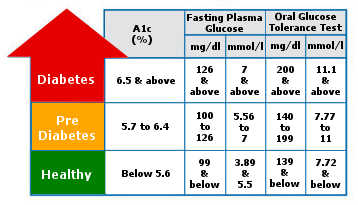Intermittent fasting or IF has become a fast-growing trend in the wellness world, and for good reason. It is one of the most popular health trends around. The health benefits of intermittent fasting are lengthy and powerful for many. There are many types of intermittent fasting, which we will get into later.
Table of Contents
- What Is Intermittent Fasting (IF)?
- Types of Intermittent Fasting
- Health Benefits of Intermittent Fasting
- 1. Intermittent Fasting May Reduce the Risk of Developing Type 2 Diabetes
- 2. Intermittent Fasting May Show Promise for Cancer Growth
- 3. Intermittent Fasting May Be an Effective Weightloss Tool
- 4. Intermittent Fasting May Improve Cognitive Function
- 5. Intermittent Fasting May Reduce Stress and Inflammation
- 6. Intermittent Fasting May Enhance Skin Health and Healthy Aging
- 7. Intermittent Fasting May Be Heart-Healthy
- 8. Intermittent Fasting May Help You Live Longer
- Conclusion
What Is Intermittent Fasting (IF)?
To make it simple, intermittent fasting varies eating between a fasting state and your regular eating routine. Since it is more of an eating pattern, it is not considered a diet in the traditional sense. While there are some more popular ways to intermittent fast, there are a total of six different variations right now. 24-hour fasts are one of the most popular types of fasting when it comes to Intermittent fasting, but there are also fasting windows, such as fasting 1 day a week and more.
One of the reasons intermittent fasting has become so popular is because it has been a part of human evolution for some time. Early hunter-gatherers did not have constant access to food, so it was always more normal for humans to go extended periods without eating. For this same reason, the paleo diet gained popularity as well. Many people believe that going back to what our ancestors were used to is the key to health and longevity. It is also a popular religious practice that dates back centuries. Religions that regularly participate in fastings like this and even more extreme include Christianity, Judaism, and Buddhism to name a few. Some religions will practice fasting for weeks at a time as well.
Even though this has become a popular method to lose weight and much more, always remember that everyone is different in what they can handle when it comes to any type of eating pattern, diet, or restriction. Listen to what feels best for your body, especially when it comes to the type of intermittent fasting if you choose to try it.
Types of Intermittent Fasting
There are six main types of intermittent fasting.
- The 5:2 Diet: Eating normally five days a week, and restricting calories two days at 500-600 calories.
- The Eat Stop Eat Fast: This is a more aggressive form, where you fast for 24 hours once or twice a week.
- The 16/8 Method: This eating window is between 12 pm to 8 pm. The fasting takes place in the off-eating hours. This is one of the most popular, as many people find they did this before even starting a fasting regimen.
- The Warrior Diet: This is another more extreme measure, where you eat only small amounts of fruits and veggies all day until you have one large meal around 4 pm. This goes on every day of the week. Many people may find this more challenging, especially if they go overboard with their fruit consumption.
- Alternate Day Fasting: This method is exactly how it sounds. Every other day, you do a 24-hour fast, or you can eat only a few hundred calories on the fasting day.
- Meal Skipping (Spontaneously): If you don’t want to follow strict instructions, you can also try this method where you skip meals here and there. This is also referred to as short fasting, and if you don’t tend to go overboard skipping meals, this could work out well for you.
Health Benefits of Intermittent Fasting
Intermittent fasting has become one of the most widely used health trends in the last several years. This type of fasting can bring about many positive health benefits, but there are some potential health risks as well. Read on to see how intermittent fasting may be able to enhance your health, and also see if there are any precautions to take before trying it yourself.
1. Intermittent Fasting May Reduce the Risk of Developing Type 2 Diabetes
While there are many ways to lose weight and improve insulin resistance, intermittent fasting may be a powerful and even preferred method for calorie restriction. One study shows that overweight or obese participants who tried intermittent fasting had improved fasting insulin and more promise is possible (1).
More research is necessary to support these findings but there is some promise in the medical community in reducing the risk of developing type 2 diabetes. If you have a family history of type 2 diabetes and struggle with your weight, there may be good news.
One area that is important to note is if you are already experiencing insulin resistance or pre-diabetes. That is because those with insulin resistance may on occasion have low blood sugar as well. Having low blood sugar means you cannot go too long without replenishing your sugar levels. That means being in a fasting state can present a huge challenge for those trying intermittent fasting. Always speak with your doctor if you have any chronic condition or issues you have been facing to make sure there are no complications in any lifestyle you decide to try.
2. Intermittent Fasting May Show Promise for Cancer Growth
Cancer is a complex topic that cannot be quelled by one health trend, but there is some promising research that may potentially link a connection to intermittent fasting and cancer prevention. One study on rats performed by the National Institutes of Health shows that there may be some positive effects on cancer prevention and treatment (2).
The mice who underwent alternate day fasting had a significant reduction of lymphoma cancer, as one example. Although there were some negative effects when combined with carcinogens in this particular study, the general conclusion was that there is mostly a positive correlation between reducing cancer growth in mice through fasting. In fact, they even reported that fasting was as effective as chemotherapy in reducing some types of cancer in mice. The study examined alternate day fasting as well as fasting one day per week.
While there is some promising research to signify there may be another solution to diminish cancer in the body, more research is necessary to strengthen this theory. Always be sure to follow a healthy diet and lifestyle to help prevent the growth of cancer.
3. Intermittent Fasting May Be an Effective Weightloss Tool
The most popular reason people try intermittent fasting, whether it’s weekly fasting, 24-hour fasting, or another type, is to lose weight. America’s obesity epidemic is constantly rising, making weight-loss trends and dieting extremely popular. Most Americans struggle with weight loss, due to many factors. Weight loss is harder for those who have hormonal imbalances, and even food additions brought on by foods that are engineered to make you crave more. For example, eating high carbohydrates or foods with lots of additives may make you crave more of those same foods, making weight loss a difficult feat.
Instead of the traditional calorie restriction dieting that so many are familiar with, intermittent fasting restricts calories without having to count them. That is because when you start intermittent fasting, you are automatically going to eat a few meals or times, which will lessen your calorie intake. Intermittent fasting can also help to burn more calories in the process so it may be a powerful combination to lose weight for many.
While there are many diet fads out there, many may be curious if intermittent fasting is a fad or if it can be effective at not only losing weight but maintaining weight loss as well. Some research suggests that this may be true (3). Everyone is different in what they can tolerate when it comes to their unique body type and conditions, so always be sure you are comfortable picking something for your unique self.
4. Intermittent Fasting May Improve Cognitive Function
The benefits of intermittent fasting may extend far beyond weight loss, cancer prevention, and insulin resistance. Intermittent fasting may also improve cognitive function, including memory repair, concentration, and even aid in the prevention of Alzheimer’s Disease.
When the body is put in a fasting state, it can help to protect brain tissue by decreasing neuroinflammation. In one study by the National Institutes of Health, the learned memory of mice improved significantly. The findings suggest that intermittent fasting improves memory by enhancing brain functions and structure (4).
In another study, research shows promising improvements in Dementia and Alzheimer’s as well. There is much evidence showing that intermittent fasting may have significant positive effects on those who suffer from Dementia and in helping to prevent these common brain diseases (5).
5. Intermittent Fasting May Reduce Stress and Inflammation
Stress is one of the most common causes of many illnesses, but many people ignore the significant effects stress can have on the body. Chronic stress may manifest as headaches, ulcers, muscle tension, stomach problems, hormonal imbalances, insomnia, hair loss, compromised immunity, and even heart disease.
In fact, did you know that 75-90% of all doctor’s office visits are related to stress-induced ailments? But for those who stress often, there may be an eating pattern to help you out. Intermittent fasting shows results in lowering oxidative stress and inflammation throughout the body (6). This is a powerful and important realization for those who have acute or chronic stress.
If you are in a high-stress state often, it’s crucial to find a way to manage it. You can manage stress through many diet and lifestyle factors, such as regular exercise, meditation, and maybe intermittent fasting will be the solution for you. Always consult your doctor or mental health professional to find out what works best for you and your unique circumstances.
6. Intermittent Fasting May Enhance Skin Health and Healthy Aging
Looking to age gracefully? Move over vitamin C serum, because intermittent fasting may be the new health trend many have been looking for. Because intermittent fasting decreases inflammation in the body, it may also improve skin healing overall as well as promote healthier aging.
In several studies, intermittent fasting can help to speed up collagen production, which is essential to promote healthy skin. When your body is in a fasting state, it is also a state of chronic caloric restriction. During chronic caloric restriction, some research shows that it may decrease the chemical reaction of skin proteins. That process is called glycation. With less glycation, there is a larger chance of the reduction of age-related accumulation, especially when through collagen production (7).
For more youthful-looking skin and fasting skin healing, intermittent fasting shows some promising results.
7. Intermittent Fasting May Be Heart-Healthy
Heart health is another complex topic that has many causes and interventions. The reason intermittent fasting may be a heart-healthy option is that it may potentially be an eating pattern that can protect against heart disease. Heart disease is the number one killer in the United States, affecting millions of people per year. In fact, it causes one out of every four deaths in America.
While certain diets like the Mediterranean diet and exercising prove to help protect the heart from complications, intermittent fasting shows some potential, too. Intermittent fasting may be beneficial to the heart because it reduces oxidative stress, and it may also optimize sleep patterns or circadian rhythms. It also puts the body in a state of ketogenesis, which may provide further benefits to the heart.
More research is necessary to fully support this claim, but several human trials prove there may be a connection between heart health and intermittent fasting.
8. Intermittent Fasting May Help You Live Longer
Thought intermittent fasting was too good to be true? Well, there are more health benefits, and this one may take the cake.
Intermittent fasting may even help to increase your lifespan because of the positive effects it may have on reducing oxidative stress, minimizing the risk of type 2 diabetes, and lowering the chance of becoming obese. All three of these conditions are major contributors to disease and death. Adding in some intermittent fasting may just extend years to your life.
Conclusion
Intermittent fasting is a dietary pattern that has recently gained tremendous popularity. There is a great deal of evidence testing rats and humans that shows it may have potent health benefits. These health benefits range from potentially improving heart function, cognitive decline, skin health, and even helping you to increase your lifespan.
There are many dietary theories and lifestyles constantly emerging as health trends or fads, but intermittent fasting may be set apart from the others. That is mainly because of the extensive research done by many groups of people. From young and old men and women, there may be powerful effects to trying any type of the six fasting types listed above.
If you are curious about trying intermittent fasting, be sure to consult your primary care provider or health professional if you have a history of any chronic disease or are unsure about it. Overall, it may provide more benefits than negatives for your health and wellbeing.












